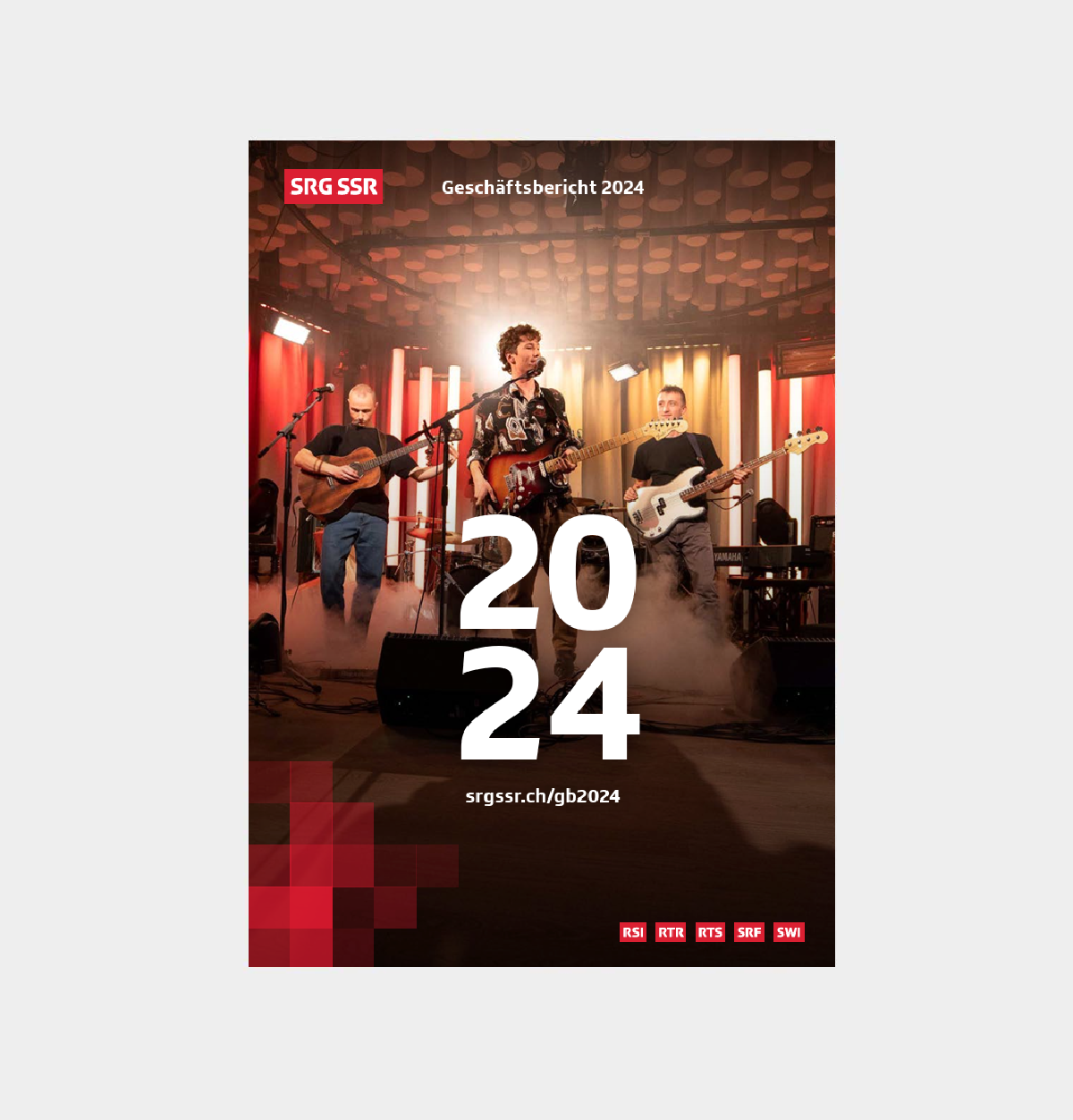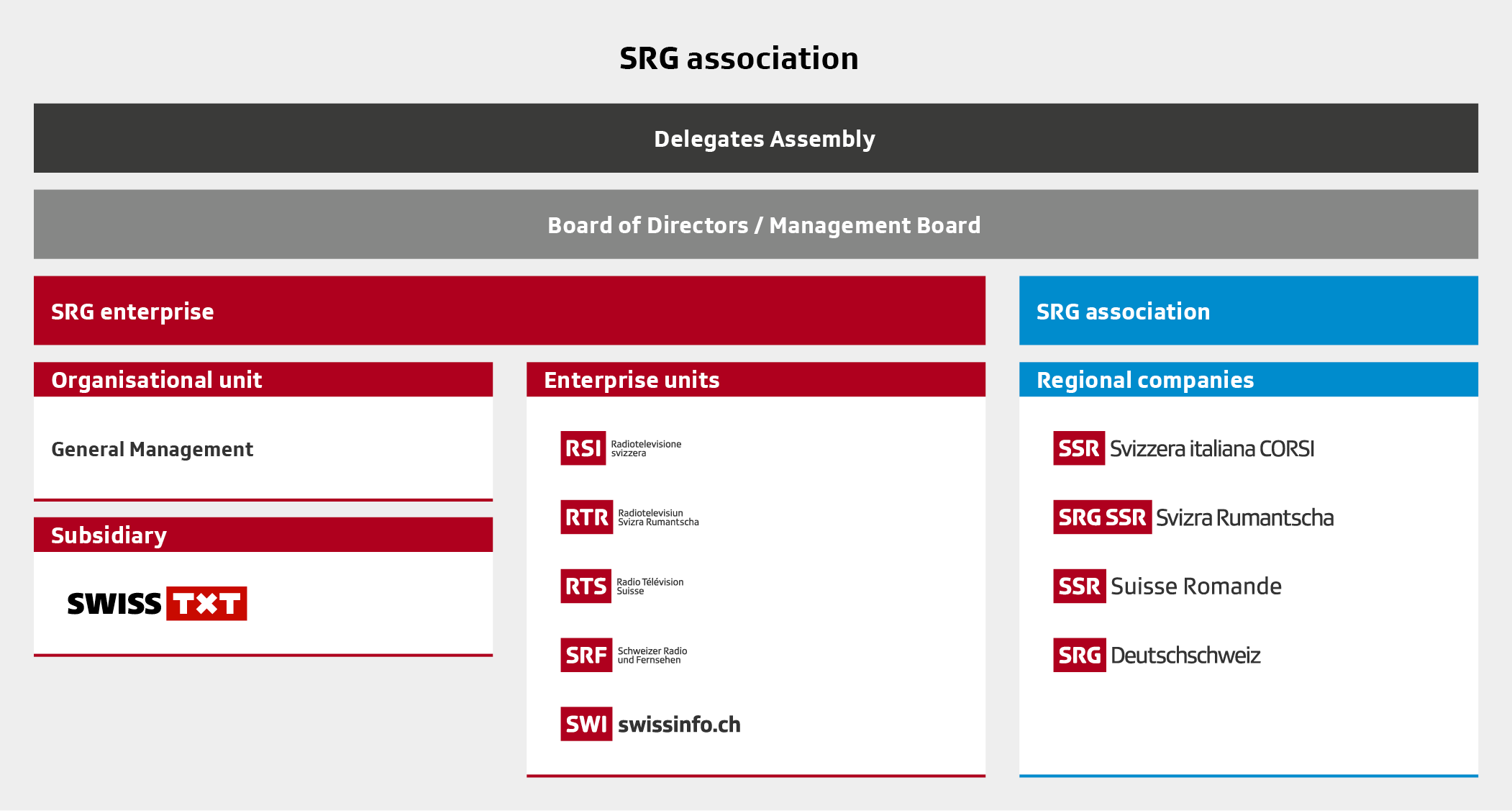The SRG SSR timeline since 1931
Contract extensions
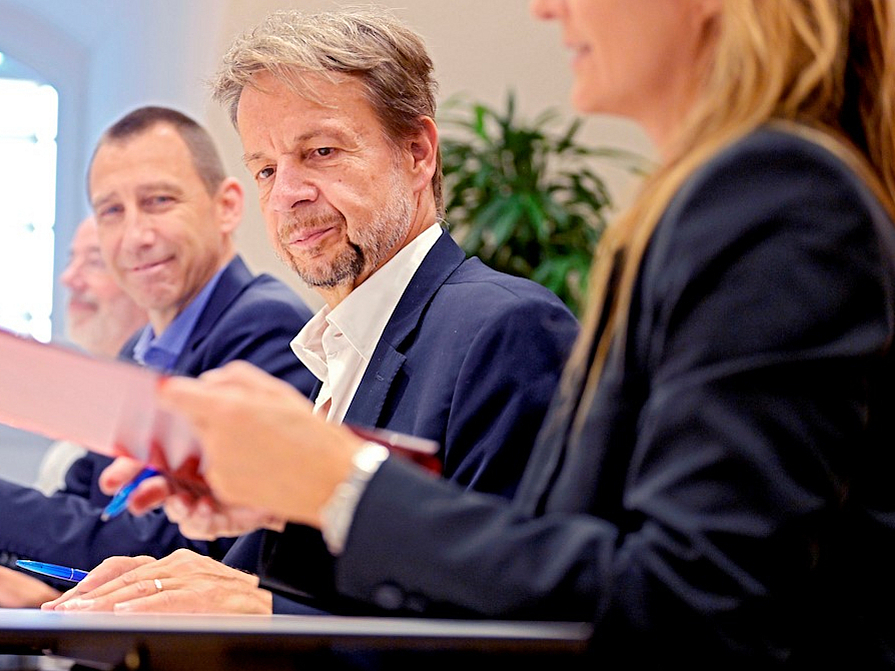
Photo: Adrian Moser
In September, SRG SSR and the associations of the Swiss audiovisual industry sign a new cooperation agreement, which is valid until 2026. The contracting parties now guarantee increased regional transparency regarding contracts, contract volumes and procurement process. The signing of the agreement with the associations for the sensory impaired will follow at the beginning of December. which defines the programmes to be subtitled and the content to be transcribed or signed. In the agreement, which is valid until 2027, SRG commits to further improving access to its services for people with sensory impairments.
Annual report 2023

New initiative against SRG SSR
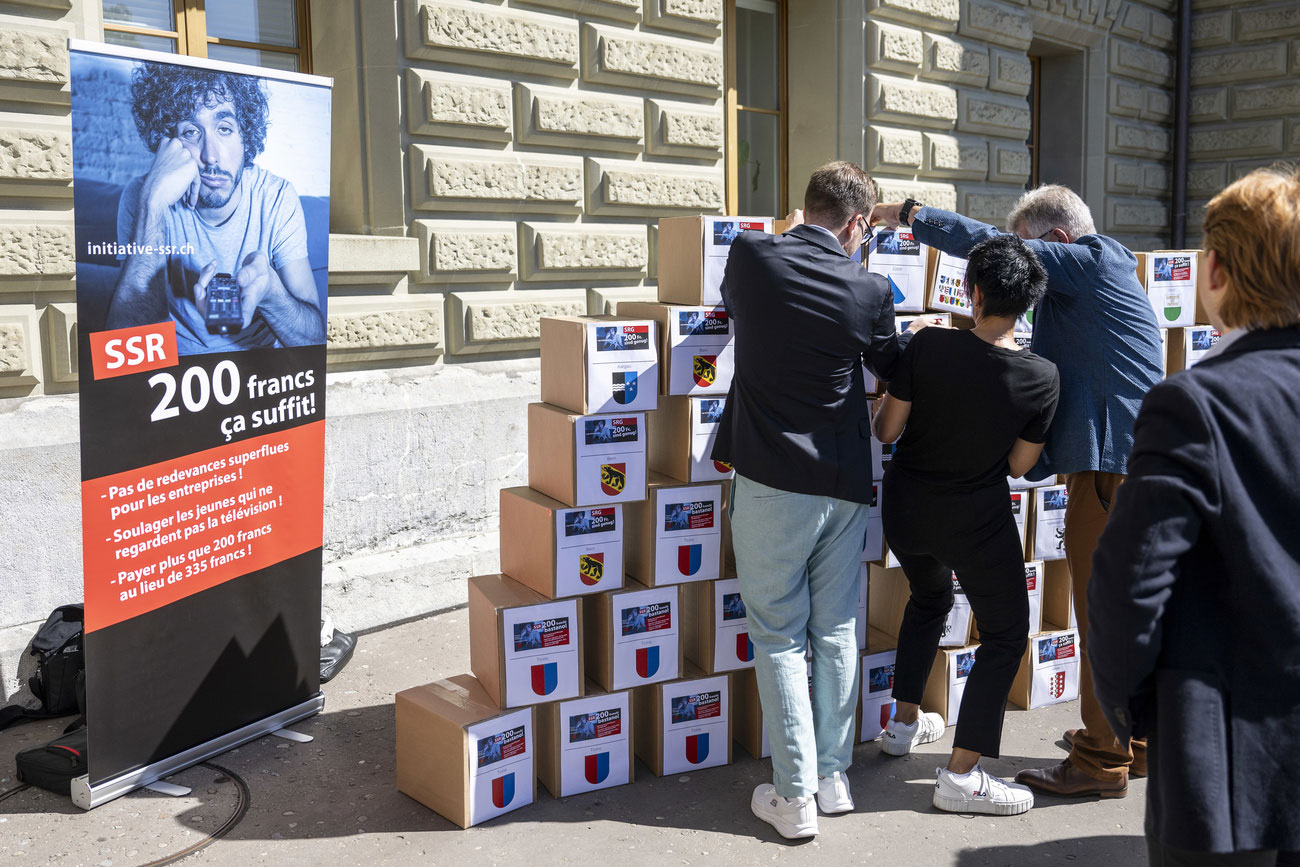
Photo: Keystone/Peter Schneider
On 10 August 2023, a civil committee submits the popular initiative "200 francs is enough" to the Federal Chancellery. The initiative committee wants to reduce the household licence fee from CHF 335 to CHF 200 and exempt companies from the licence fee altogether. In November 2023, the Federal Council spoke out against the initiative. In return, it plans to gradually reduce the household fee from CHF 335 to CHF 300 per year. The Federal Council also wants to exempt companies with an annual turnover of less than CHF 1.2 million from the licence fee.
«Pacte de l’audiovisuel» 2024–2027

SRG is reinforcing its commitment to Swiss filmmaking and is investing CHF 34 million a year in the "Pacte de l'audiovisuel" from 2024. This is CHF 1.5 million more per year than in the previous four-year period. The co-production agreement between SRG and the independent film industry comes into force on 1 January 2024 and is valid until the end of 2027.
Play Suisse breaks the million barrier

Three and a half years after its launch, the SRG streaming platform Play Suisse has more than one million registered users. All content will be available with the original sound and subtitles in German, French and Italian. Selected programs will also be subtitled in Romansh. Around 40% of Play Suisse users consume content from other language regions.
Swiss Music Charter
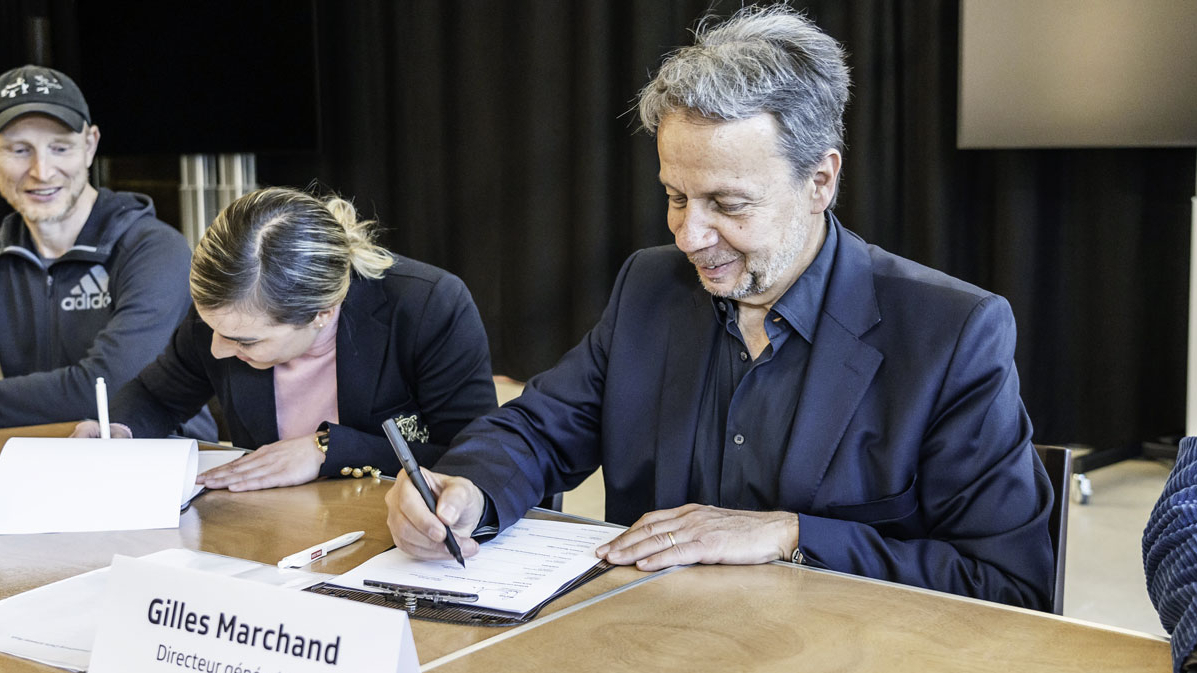
Photo: Luca Gisler
Representatives of SRG and the Swiss music industry sign the Swiss Music Charter. The aim of this cooperation agreement is to promote Swiss music and new talent and increase its visibility. During the 20 years of collaboration, the proportion of Swiss music broadcast on all SRG radio stations has increased and, depending on the station, accounts for more than 50% of airtime.
Victory at Eurovision Song Contest

Switzerland wins the biggest international music competition, the Eurovision Song Contest: 24-year-old musical talent Nemo takes first place in Malmö, Sweden. This makes Switzerland the host country of the Eurovision Song Contest 2025, a major event organised by SRG.
Susanne Wille
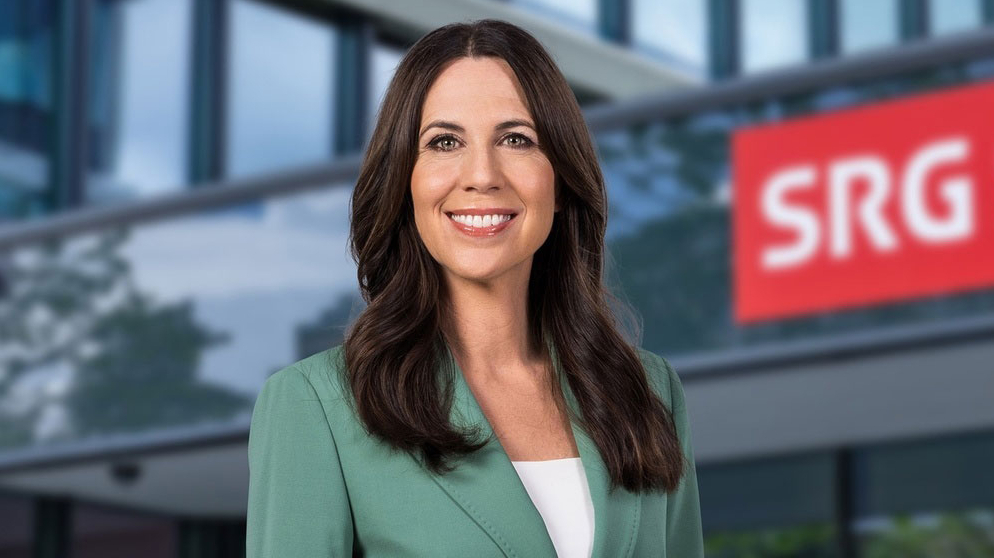
On 25 May 2024, Susanne Wille became the first woman to be elected director general of SRG. She has worked for SRF since 2001, including as a presenter of the news programme "10 vor 10", as a parliamentary correspondent and, from 2020, as head of the SRF cultural department. She will take office in November 2024.
Decommissioning of FM

Photo: Keystone/Mauritius Images/Nikky
The SRG Board of Directors decides to cease broadcasting SRG radio programmes via the outdated FM antennas as of 31 December 2024. Since 2020, the radio industry is no longer obliged to broadcast radio programmes via FM technology, and maintaining three parallel broadcasting technologies is expensive.
Annual report 2024
